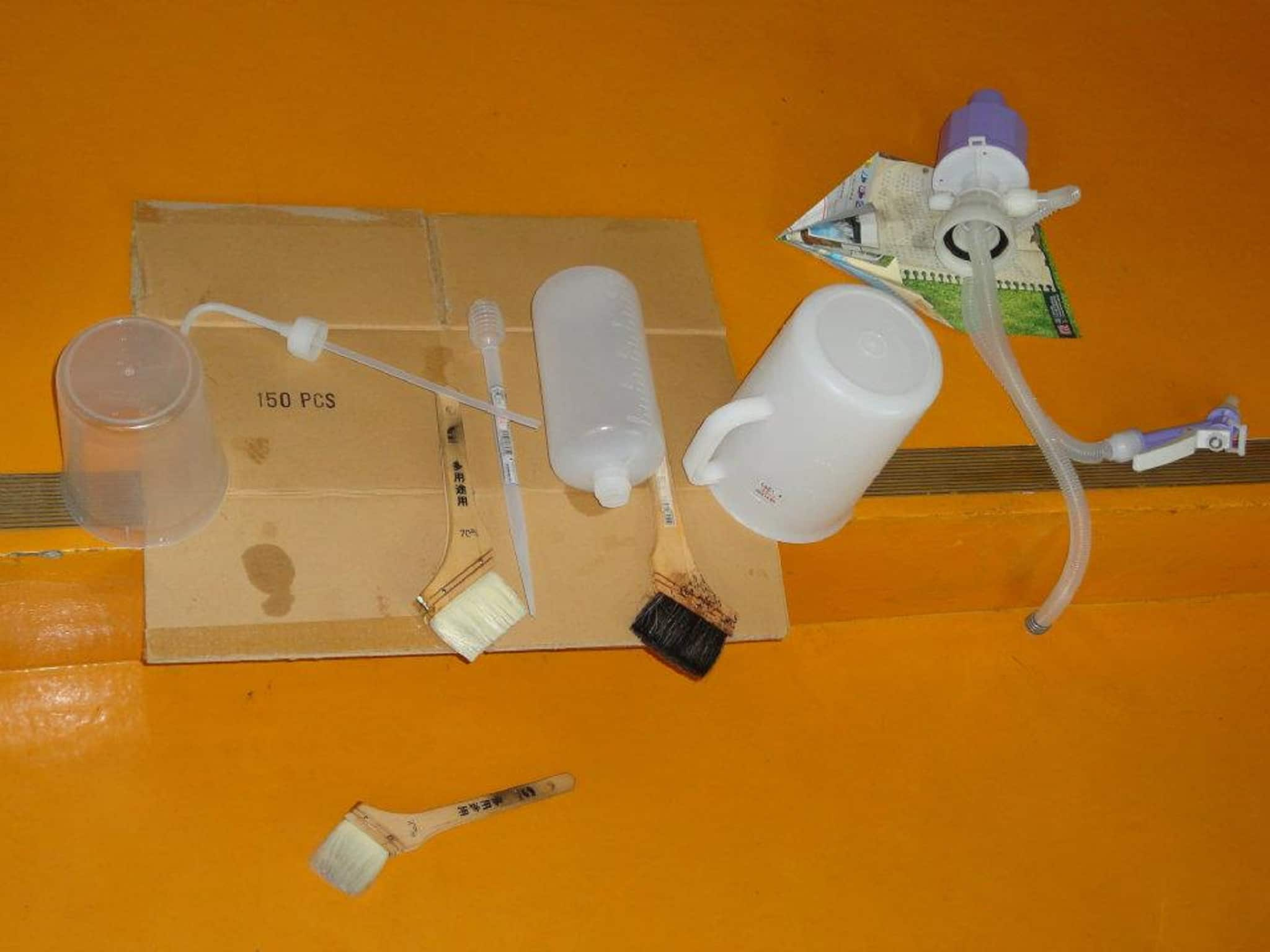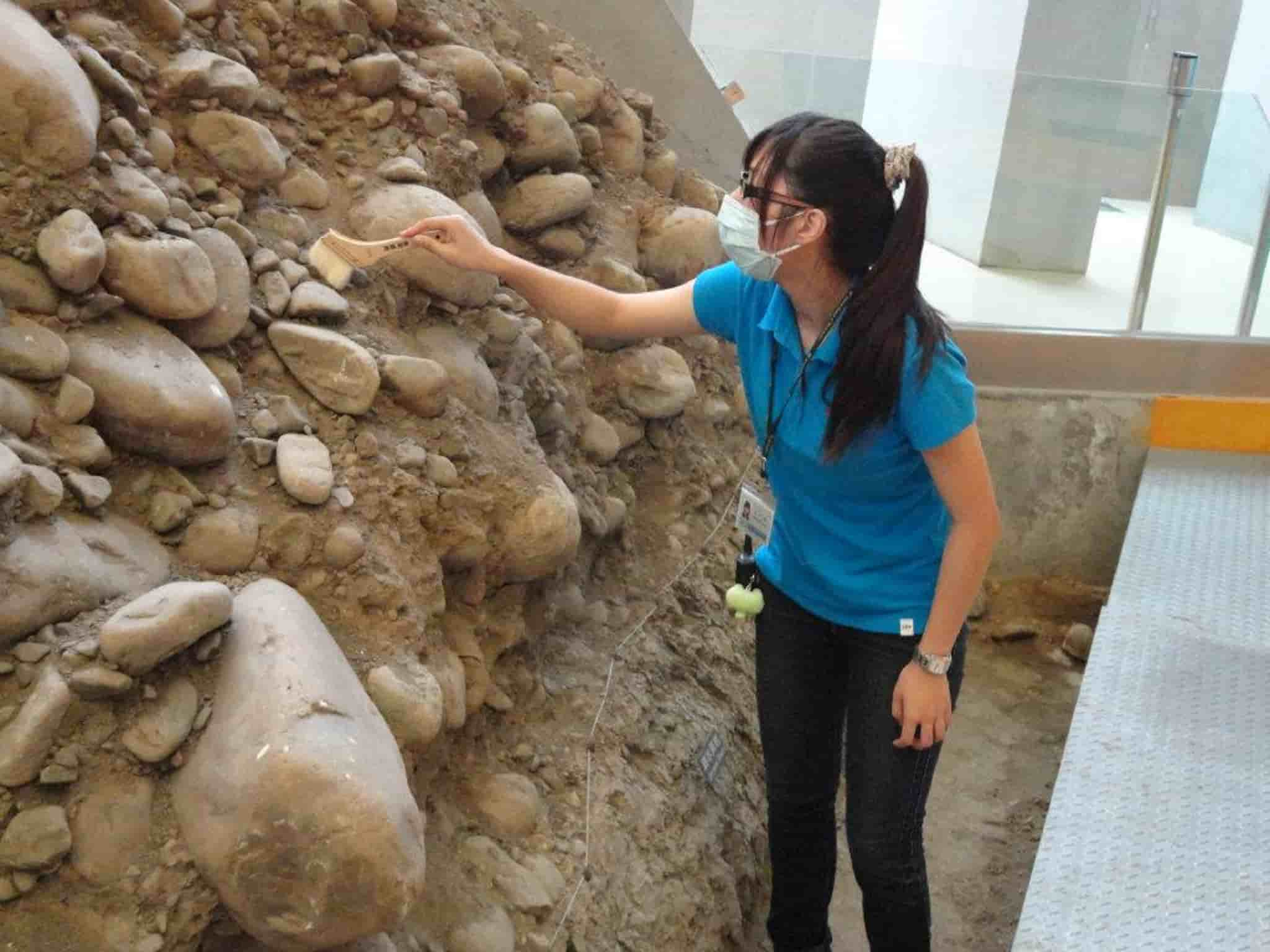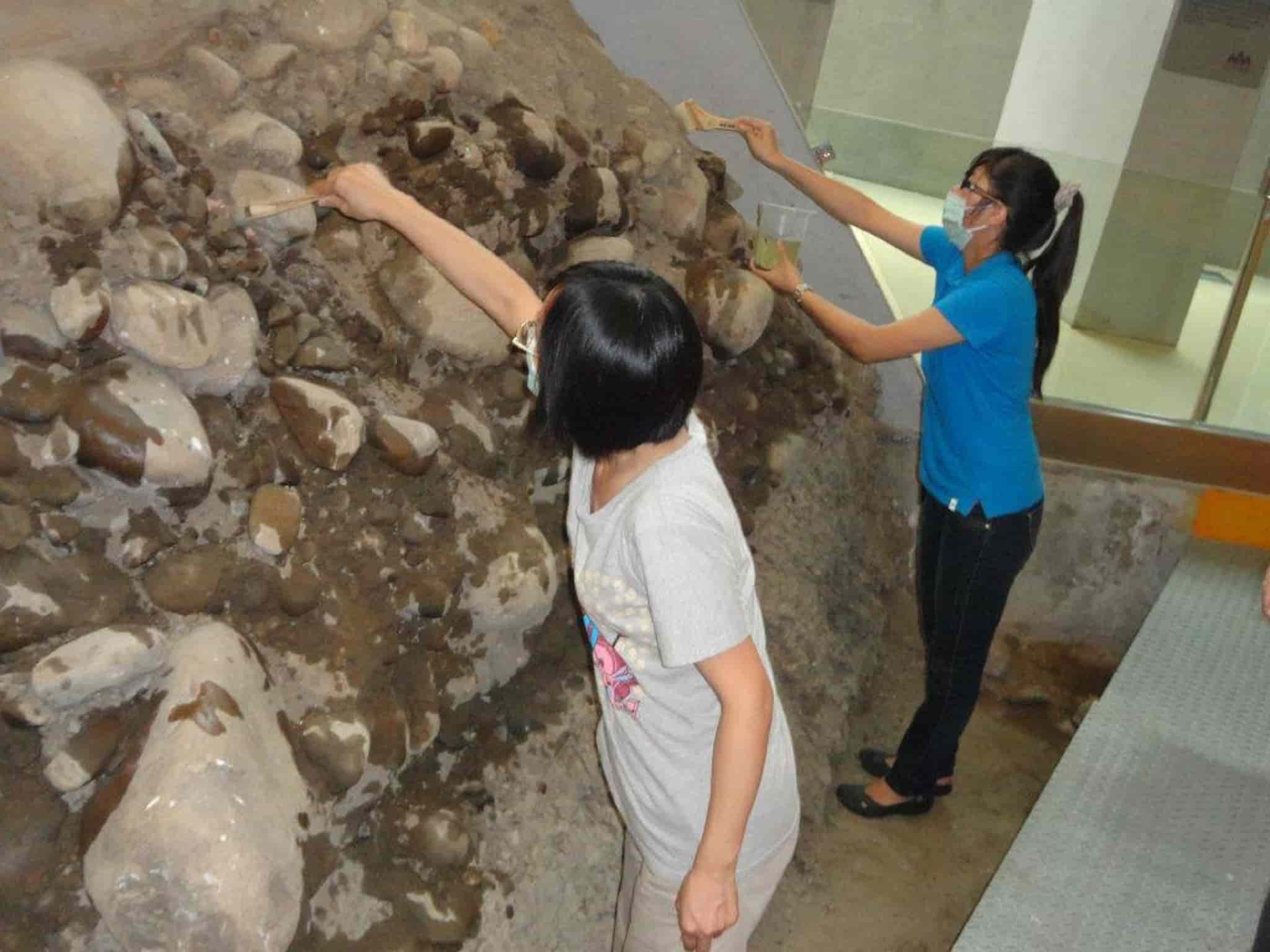斷層剖面挖掘保存介紹 ( Fault Section Excavation and Preservation )
館內展示的是現址挖掘、清修、保存的「車籠埔斷層剖面區」, 921 地震後,委由時任國立中山大學海洋地質研究所的袁彼得教授,進行斷層剖面挖掘及保存,以提供展示之用。
In this museum is displayed a section of the Chelungpu Fault that has been excavated, repaired, and preserved. Following the 921 Earthquake, Bee-Deh Yuan, then a professor in the Institute of Marine Geology at National Sun Yat-sen University, was commissioned to excavate and preserve this fault section for exhibition purposes.
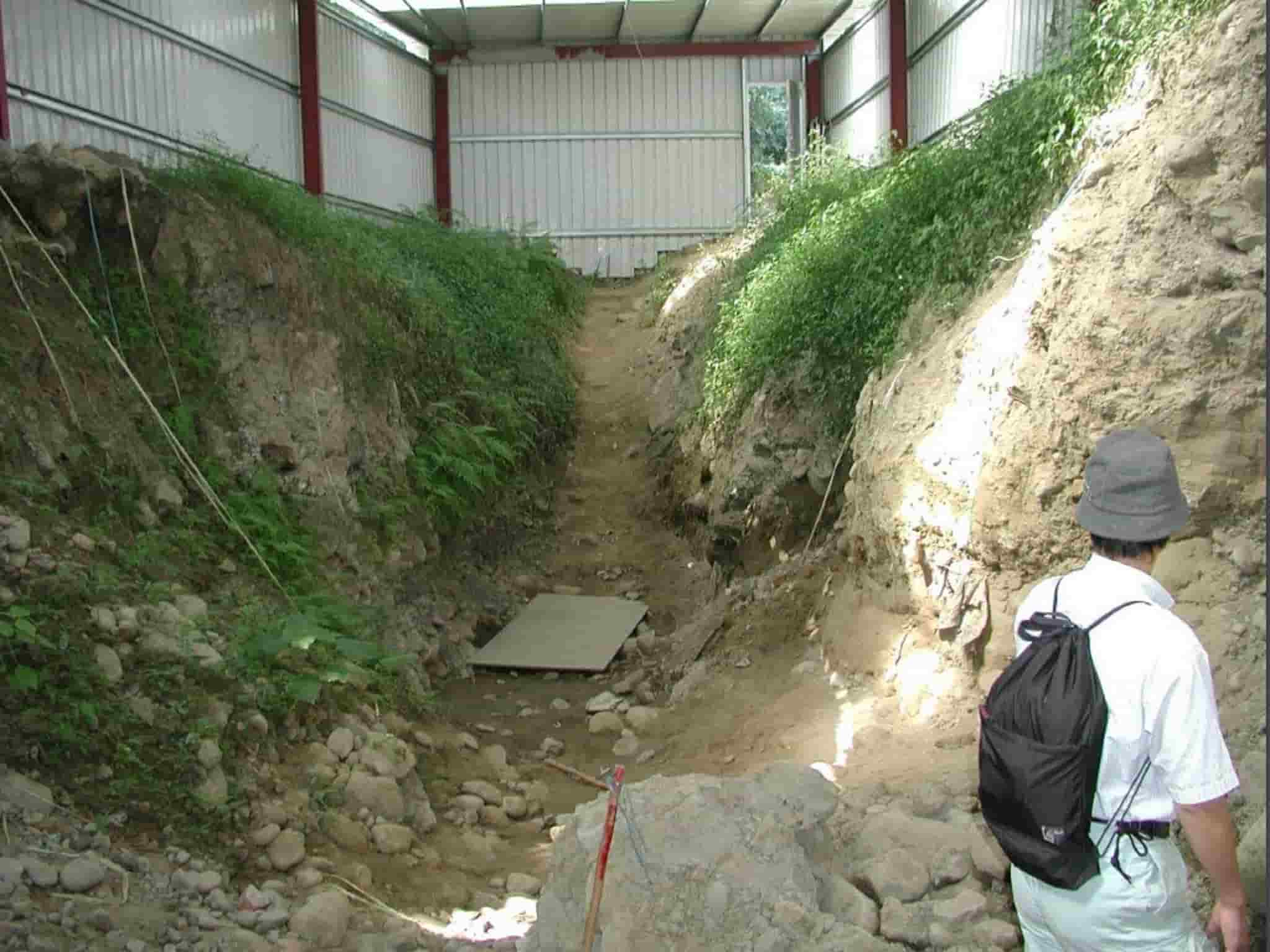
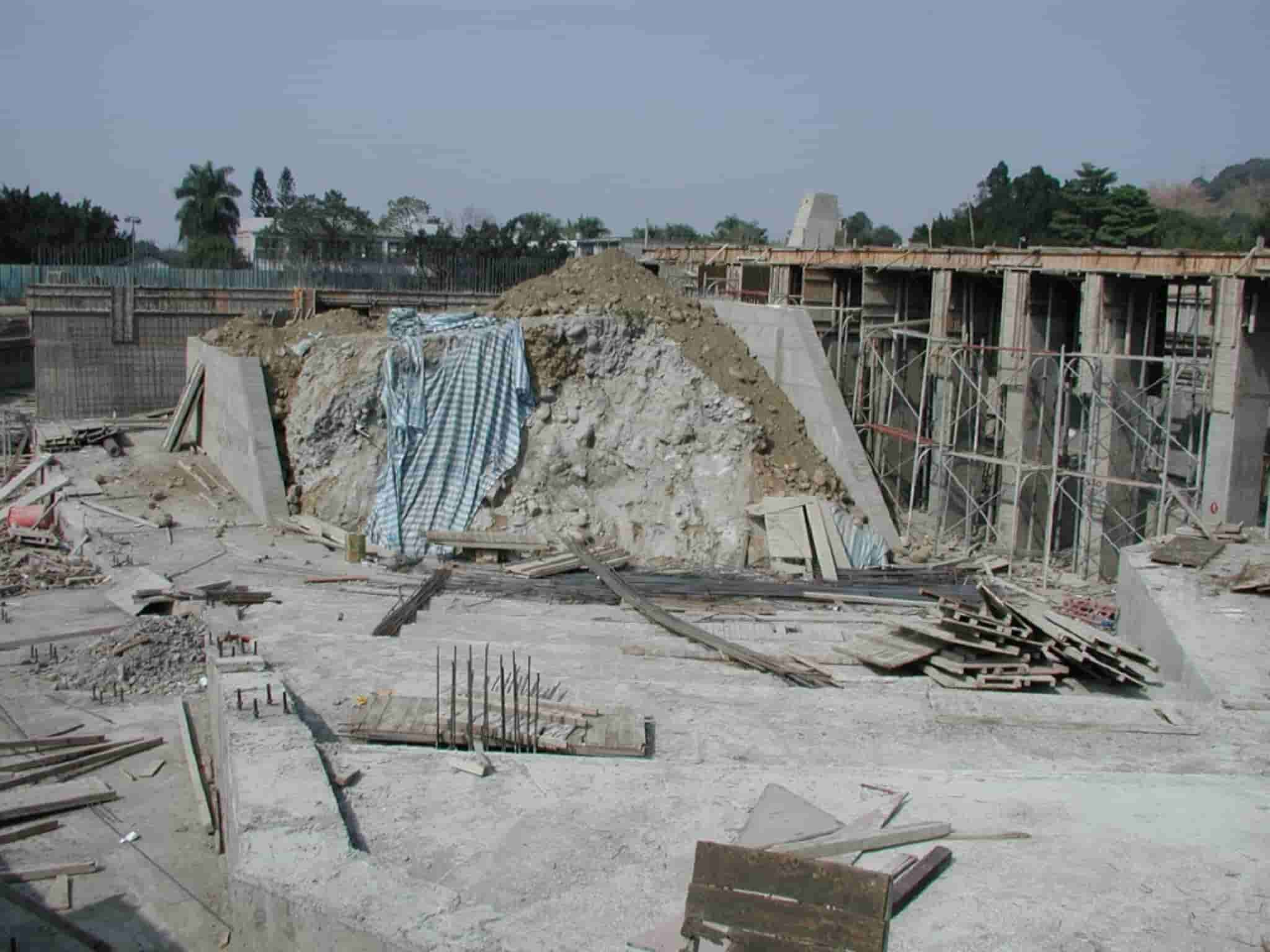
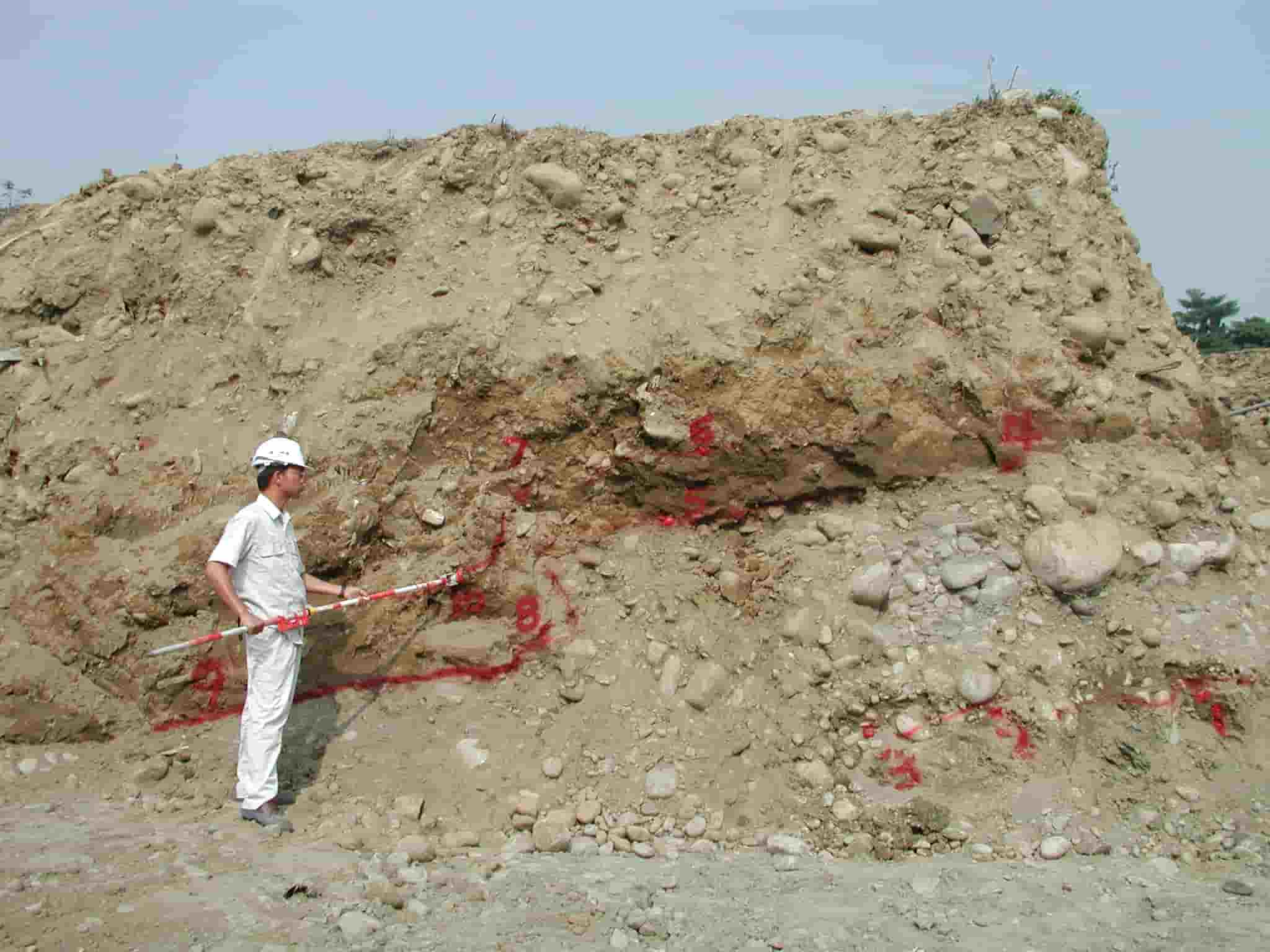
斷層剖面保存實屬不易,不像博物館展櫃內的文物能控制溫、濕度,有鑑於日本保存經驗完整,袁教授數次前往日本訪問,並結識兵庫縣「人與自然博物館」斷層保存專家加藤茂弘先生。加藤茂弘先生數次來台協助園區斷層剖面保存,並將斷層剖面修成 45 度角,使得土石較不易崩落,此外,剖面保存並得利於 2001 年新藥劑 TOT 的上市,園區於同年 4 月從日本引進後,剖面保存狀況不再因乾躁而龜裂,由此奠定日後園區剖面保存的基礎,也成為臺日合作的成功典範。
Preserving fault sections is not easy. They are not like cultural objects that can be placed in temperature- and humidity-controlled glass cases. To understand the Japanese experience, Yuan traveled there several times and met with Shigehiro Kato, a fault preservation expert at the Museum of Nature and Human Activities in Hyogo Prefecture. Kato also came to Taiwan multiple times to assist this museum in its fault preservation efforts. As he suggested, this fault section was repaired at a 45-degree angle to reduce the risk of collapse. The preservation of this fault section also benefited from the launch of a new external shape preservative known as TOT in 2001. In April of that year, this museum brought in this preservative from Japan. After using it, there was no longer cracking due to dryness, laying the foundation for later preservation of this fault section. This is also an example of the beneficial cooperation between Taiwan and Japan.
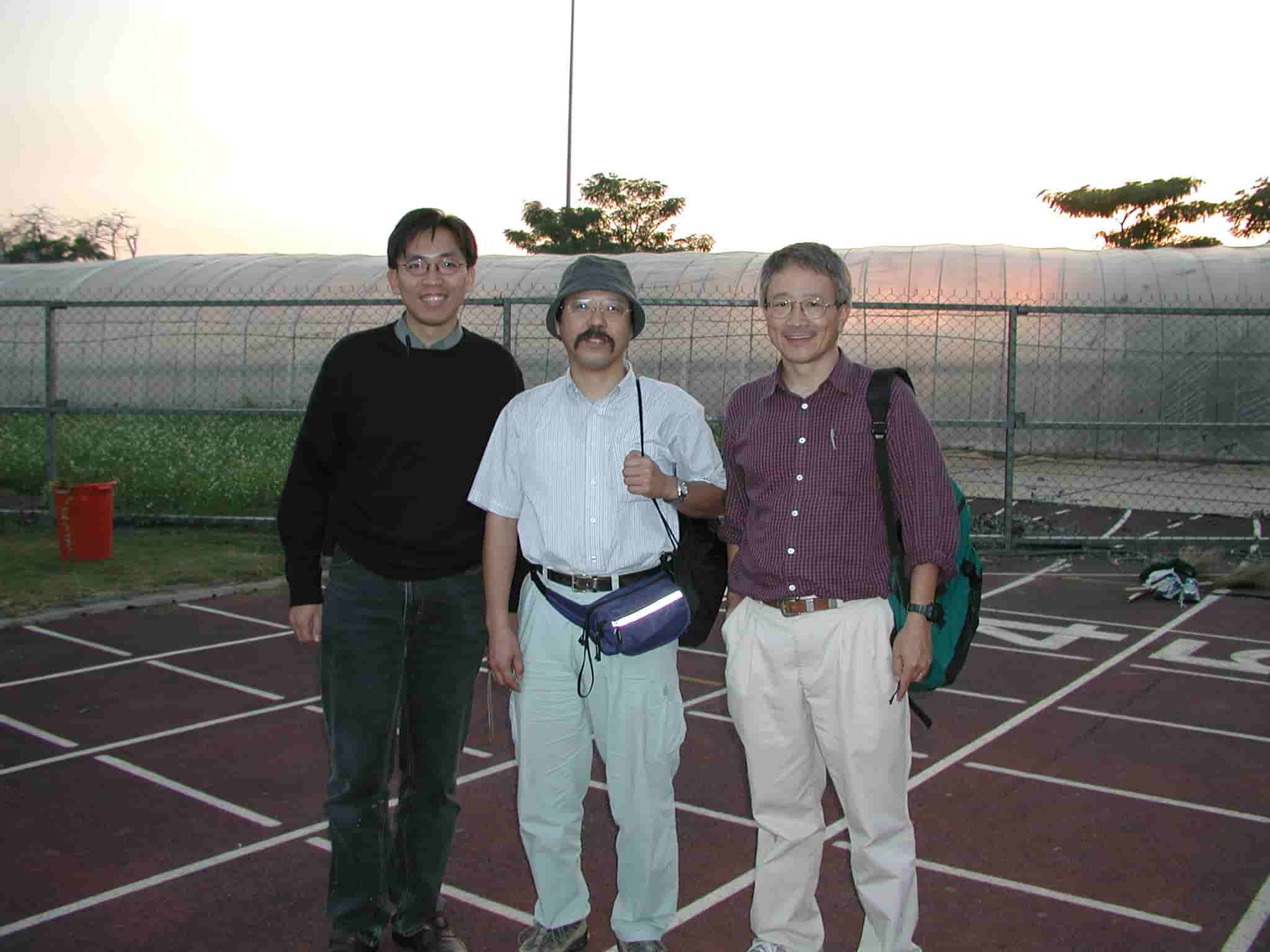
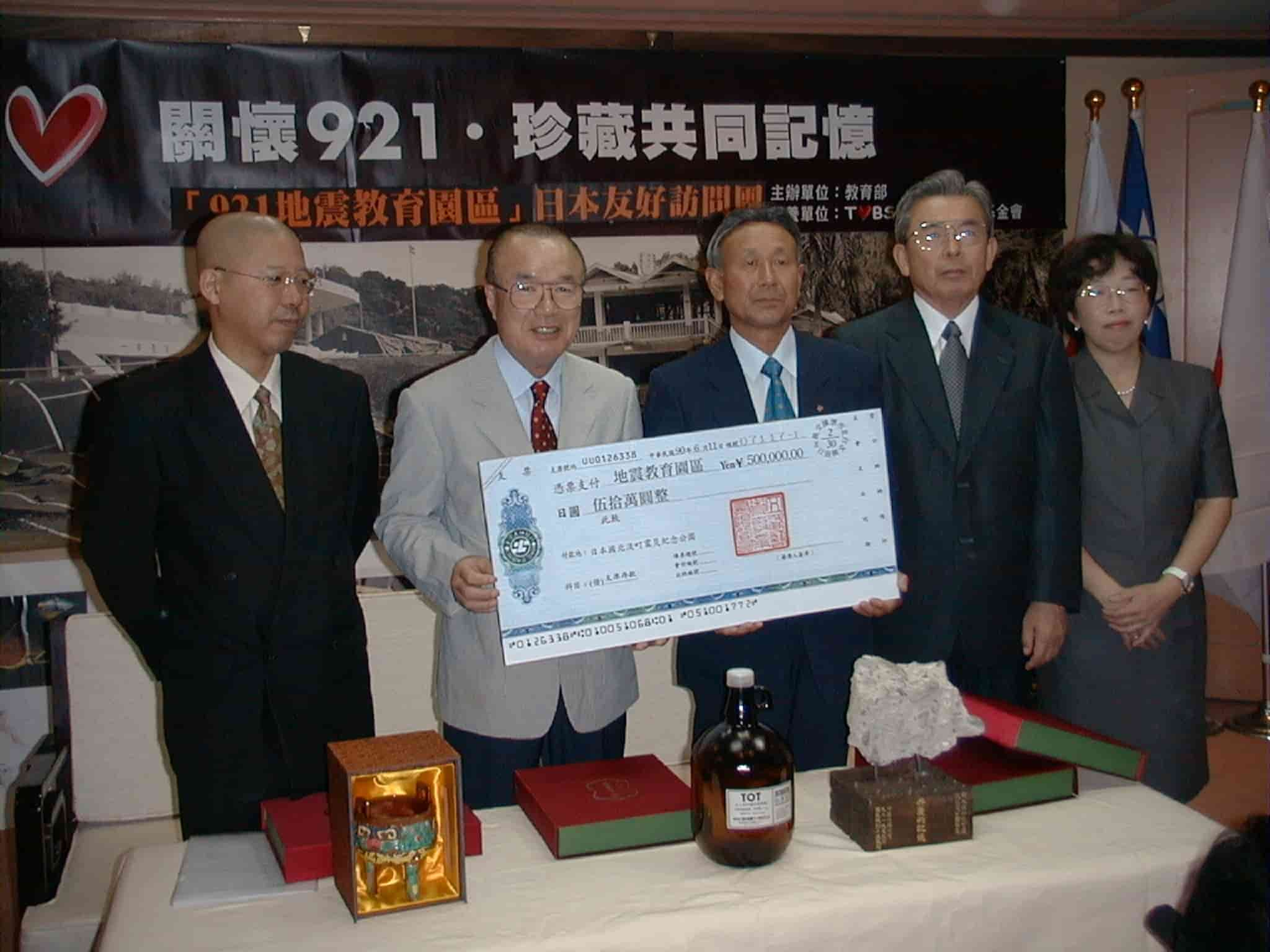
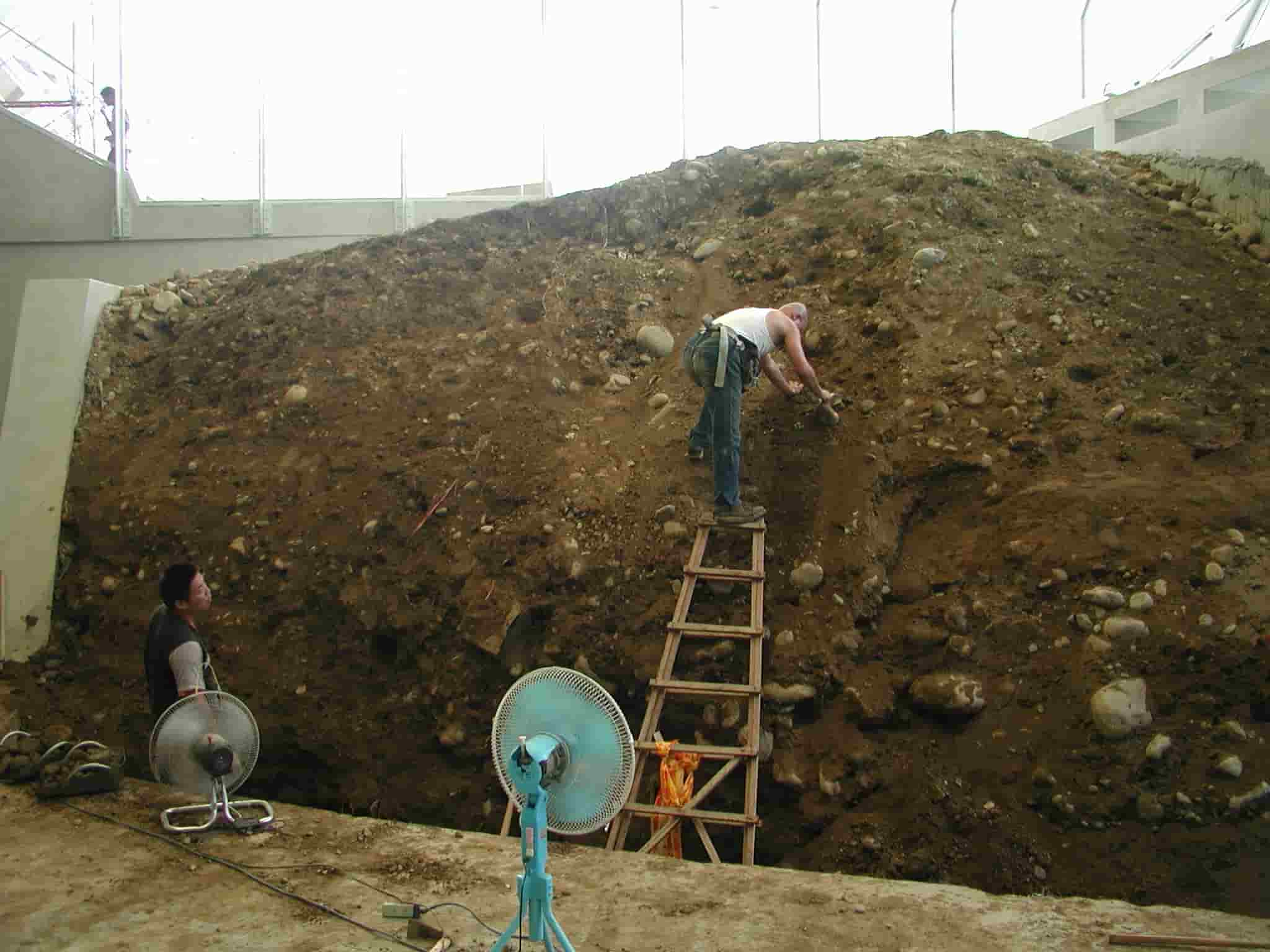
Ps:為讓剖面保存永續,園區一年約進行1~2次的TOT補強及表面除塵。
Note: To ensure sustainable preservation of this fault section, it is reinforced with TOT and surface dust is removed once or twice every year.
